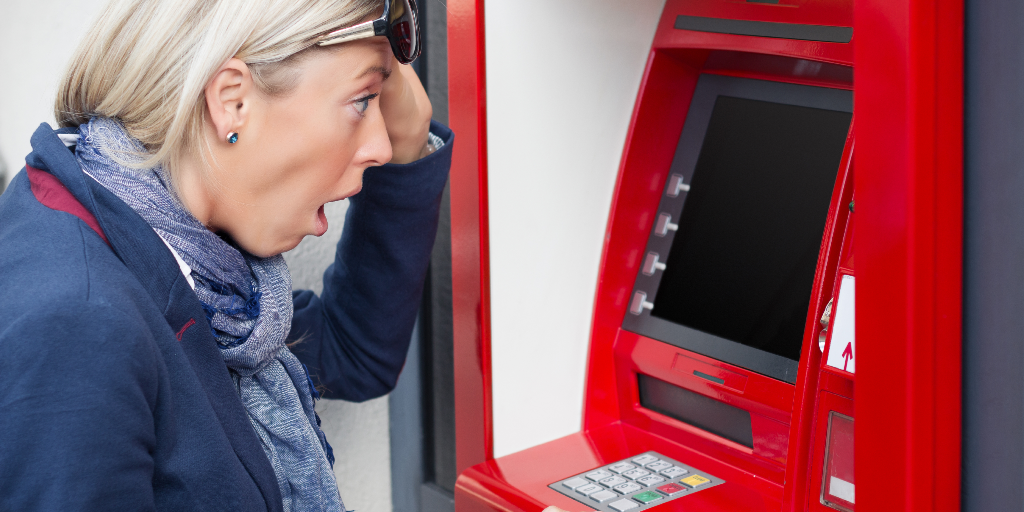What is a Bank Account Levy?

- A bank levy is a legal action ordered by the court to take money from your bank account to satisfy an unpaid debt.
- When an account holder receives a bank levy, they will receive notice by mail from the court where the judgment was made.
- You should call your bank immediately if you've been served with a bank levy.
What is a Bank Levy?
A bank levy is a legal action ordered by the court to take money from your bank account to satisfy any unpaid debt. For example, it can happen if you owe money on a judgment or if the government is owed money from taxes.
Failure to make timely payments can result in creditors trying to collect money rightfully owed. In extreme cases, they can file a lawsuit and demand a bank levy. As a result, the money in your bank account will not be accessible, and creditors will have first dibs on the money being deposited into your account until your debt is paid in full.
Levies can also be issued from an unpaid loan, credit card debt, or child support payments. When the court issues a bank levy, it asks the bank to send any money you have in your bank account straight to the creditor or agency that issued the warrant for collection.

Recommended Read: This Nonprofit Buys and Then Pays Off Medical Debt
How Bank Levies Work
Bank levies can be issued against an individual or joint account holder. While it's not always the case, creditors may have the right to take money from a joint account if it's in your spouse's name and you reside in a community property state.
When an account holder receives a bank levy, they will receive notice by mail from the court where the judgment was made. The notice will inform you that an account has been levied and warn them not to make any withdrawals or transfers from the account until further notice from the court.
A creditor must submit a request to your bank with documentation of a court judgment against you before they can take money from your bank account. However, some public creditors, like the Internal Revenue Service (IRS), do not need a court ruling.
The court may then ask for copies of checks that have been written since the issuance and for records of deposits made into the account since receiving notice of the levy.
Once the creditor requests, your bank will freeze your account and investigate the situation. Your bank may not notify you that a bank levy is in effect, and creditors may not inform you either. A levy is a collection strategy used by creditors only after they have exhausted all other options for collecting from you.
Recommended Read: Credit Bureaus Beginning to Remove Medical Collection Debt
How to Stop or Reverse a Bank Levy
Call Your Bank
If you have been served with a bank levy, you should call your bank immediately and see if they can freeze your account so that no one else can take any money out before the matter has been settled in court.
Bank Levy Dispute
You have the option to dispute a levy. Doing so can stop it from happening or limit how much money creditors can take from your account.
If you decide not to call your bank and freeze your account, lenders may exhaust it, making it challenging to cover expenses. As a result, you might end up with bounced checks and additional fees. You may also be subject to a fee to process the levy.
Bank levying can repeatedly happen until all debt has been paid in full. After that, creditors will continue to try pulling money from your bank account until they get what is rightfully owed to them.
Consult an Attorney
Since banking laws differ from state to state, speak with a local attorney to learn about your options to stop a levy. There are various reasons to release levies, and some may include the following:
- The amount owed has been paid in full
- Before the levy's issuance, the period for collection had ended
- You enter into an installment agreement, but its terms forbid the continuation of the levy
- The levy makes it difficult for you to pay for essential expenses
- You could prove that someone else received the money if you were the victim of identity theft.
Additionally, the funding source matters. Creditors might not have access to the funds in your account, depending on how you obtained them. If your account balance contains protected funds, your bank should be able to determine that.
If you have deposits from several different sources, things could get tricky. Special consideration is given to the following:
Federal Payments
Benefits like social security payments or federal employee pensions are typically protected. However, if you owe money to the federal government, you don’t enjoy as much protection as you would if you owed a private creditor.
Recommended Read: How to Protect Your Email Account and Personal Information
Who Uses Bank Levies?
A levy could result from the debt owed to numerous kinds of creditors. For example, the IRS and the Department of Education frequently use levies. But levies can also be used by private creditors such as lenders or people who owe child support if they obtain a court order against you.

Garnishment vs. Levy
Garnishments are court-ordered seizures of a debtor's wages before they are deposited into a bank account. On the other hand, bank levies are typically money taken from a debtor's bank account.
Legal Counsel
Laws can differ based on your state, and every circumstance isn’t the same. So, it’s essential to seek legal counsel familiar with bank levies and your particular case.
The Money Wrap-Up
No one wants to see their bank account being drained of its funds. If a creditor has filed for a bank levy against you, it's important to understand that you can keep your money depending on your situation.
If you believe there was an error on the creditor's part or if you think you are the victim of identity theft, then you must contact the lender and explain the situation. If you do not suspect an error to have occurred, then contacting a lawyer or a credit counselor can guide you through the next course of action.